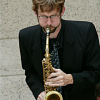Home » Jazz Articles » Album Review » Dana Sandler: I Never Saw Another Butterfly
Dana Sandler: I Never Saw Another Butterfly
The propaganda role of the camp capitalized on its rich cultural life, including (or, better, allowing) concerts, lectures, and education for children. Terezin stood apart from the other concentration camps as it was governed by Jewish self-administration and included a larger population of Jewish artists, musicians, and intellectuals, giving the camp the appearance of a benign waystation ahead of an ostensibly benign relocation.
Many professional musicians were housed at the Theresienstadt ghetto. Karel Ančerl conducted an orchestra composed mostly of professional musicians. Composer Viktor Ullmann produced more than 20 works while imprisoned at Theresienstadt, including the opera Der Kaiser von Atlantis. The children's opera Brundibár, composed in 1938 by Hans Krása, was first performed at Theresienstadt on September 23, 1943. A popular performance, the opera was performed 55 times until the final transports of autumn 1944 emptied the camp.
In 2006, Naxos Records released Krása's Brundibár as performed by the Northwest Boychoir under the direction of Joseph Crnko, Chorus-master and the Music of Remembrance, conducted by Gerard Schwarz. This recording also contained Lori Laitman's art song settings for six poems from I Never Saw Another Butterfly, arranged for soprano and clarinet. These poems were written by child victims of the Holocaust. A reputed 15,000 children passed through Terezin, fewer than 100 survived.
Vocalist Dana Sandler has chosen 9 poems from the text of < em >I Never Saw Another Butterfly for her debut recording of the same name. Sandler's interest in the subject began while attending the New England Conservatory. Digging deep, Sandler dedicates her project to Friedl Dicker-Brandeis, an Austrian artist and teacher who had organized secret classes for the children in the camp. Dicker-Brandeis collected 4500 drawings and poems from the children, stored in two suitcases, before she was sent to her death at Auschwitz in 1944.
Sandler, familiar with and affected by these poems since her teenage years, found her ultimate inspiration in the project at the profound intersection of her conservatory training and early motherhood. That confluence of spirits and memories provided the potent exegesis for the project, a song- cycle not unlike Gustaf Mahler's settings for Friedrich Rückert' poems, Kindertotenlieder. This is a very personal project for Sandler.
Globally, Sandler's compositional approach orbits a certain dissonant anxiety. This manifests in drummer Austin McMahon who provides carefully deft brush and cymbal figures that deny relaxation in favor of a heightened experience of hope in the face of none. Trumpeter Peter Kenagy's smoothly round and impressionistic brass tones soothe while remaining distant and obtuse. This anxiousness is also evident in Sandler's melodic figures, intertwining dissonance with an occasional consonance, often avoiding tonal reconciliation and harmonic resolution altogether. There is a necessary lack of completeness in these compositions that Sandler captures perfectly for the bed upon which these sacred words lie.
The cycle opens with the instrumental "Dear Pavel" referring to Pavel Friedman (1921 -1944, Auschwitz). It softly introduces the cycle with a simply stated melodic figure, started with Carmen Staaf's piano and then doubled with bass, flugelhorn, and finally Rick Stone (Guitar)'s alto saxophone. It is a quiet mood piece, brief and complicated as a shallow breath. "Dear Pavel" gives way to Friedman's "Butterfly" the poem giving title to the original collection of poems and this collection of compositions. "For seven weeks I've lived here / Penned up inside this ghetto. But I have found what I love here," a statement of hopeful resignation. "That butterfly was the last one. Butterflies don't live here, in the ghetto" is sepia black-and-white in image and aire.
Franta Bass's (1930 -1944, Auschwitz) "Home / The Old House '' is vocally split between Sandler and her daughter, Rory. This is the most arresting piece in the collection. At once upbeat, flowing, the transition, featuring saxophone and trumpet, between singers is stark and abrupt. The juxtaposition of new and old is presented backwards, the former by an adult and the latter, a child. Sandler proves a master melodic alchemist, mixing emotion and history. The cycle's second of three diptychs, Alena Synková's (one of the few survivors, d. 2008) "I'd Like to Go Alone" is coupled with the traditional "Ani Ma'amin" (אני מאמין) "I Believe." Propelled by an insistent piano figure, Sandler sings the brief poem twice, separated by a thoughtful interlude before concluding with Maimonides's expression of faith.
Sometimes the quiet allows for an assimilation of grace. Listening to this is one of those times, where it can be noted that everything happening today has already happened a thousand times before, reappearing as some divine reminder that everything is "we," and not "just us."
Track Listing
Dear Pavel; The Butterfly; Dear Franta; Home/The Old House; The Garden; Dear Alena; I’d Like to Go Alone/Ani Ma’amin; Tears; Dear Anonymous; On a Sunny Evening; Birdsong/Butterfly Reprise.
Personnel
Dana Sandler
vocalsCarmen Staaf
pianoJorge Roeder
bass, acousticAustin McMahon
drumsPeter Kenagy
trumpetRick Stone
saxophone, altoMichael Winograd
clarinetRory Sandler McMahon
vocalsAlbum information
Title: I Never Saw Another Butterfly | Year Released: 2020 | Record Label: Fractamodi Records
Tags
PREVIOUS / NEXT
Support All About Jazz
 All About Jazz has been a pillar of jazz since 1995, championing it as an art form and, more importantly, supporting the musicians who make it. Our enduring commitment has made "AAJ" one of the most culturally important websites of its kind, read by hundreds of thousands of fans, musicians and industry figures every month.
All About Jazz has been a pillar of jazz since 1995, championing it as an art form and, more importantly, supporting the musicians who make it. Our enduring commitment has made "AAJ" one of the most culturally important websites of its kind, read by hundreds of thousands of fans, musicians and industry figures every month.



























